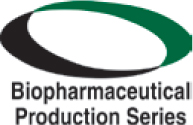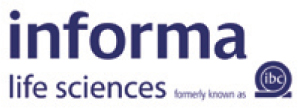Recent achievements driven by the application of novel approaches and tools have caused significant savings in time and money for cell-line selection and development. This conference will report on the latest applications of automated tools, “-omics” technologies, analytical methods, and engineering strategies to help you understand and improve the stability, quality, and workability of your cell lines. Hear the latest case studies and unpublished data from industry and academia, and collaborate with your peers during strategic discussion groups and interactive roundtables to overcome pressing challenges.
With the recent completion of the Chinese hamster ovary (CHO) cell genome sequencing project, companies are now challenged to work on the genome information. They are using -omic technologies to advance their understanding of cell lines and improve their predictability. This event will deliver answers to your questions about how to apply information provided by the CHO genome and show you how to deal with all the data and detail.
New This Year: For 2012, IBC has expanded coverage of
-
Streamlining the transition from discovery to development
-
Improving protein expression with the CHO genome
-
Increasing predictability in early development
-
Applying -omics technologies and next-generation sequencing
-
Testing safety of engineered cell lines using massively parallel sequencing
-
Developing cell lines and culture processes for biosimilars
-
Implementing a targeted integration approach to reduce development time and cost
-
Decreasing N-linked glycosylation to improve biological activity
-
Adopting PAT to improve clone selection, process understanding and development.
Interactive Panel Discussion: Improving Product Manufacturability — Discovery Through Development (sponsored by Lonza), moderated by Andy Racher (senior principal scientist in cell culture process development at Lonza)
A site tour will visit Boehringer Ingelheim’s Fremont, CA, facility on Thursday 7 June 2012 (5:00–9:00 pm).
CHO Genome “Show and Tell” Workshop, moderated by Kelvin H. Lee, PhD (Gore professor of chemical engineering and director of the Delaware Biotechnology Institute at the University of Delaware): This hands-on, interactive workshop will include live demonstrations of the CHOgenome.org website and case studies to help you learn what steps to take next. See the Web tools in action. Get answers to your specific questions, and receive expert guidance on using those tools.
Keynote Presentations-
“Putting the CHO Genome to Work: Illustrations to Increase Transgene Integration and Expression and to Improve Protein Processing” (new, unpublished data), by Nicolas Mermod, PhD, professor and director of the Institute of Biotechnology at the University of Lausanne in Switzerland
-
“A Look Back and a Look Ahead: Perspectives from Cell Line Development at a Large Biotechnology and Now Pharma Company,” by John C. Joly, PhD, senior director of early stage cell culture in process development at Genentech, Inc.
-
“An Update on the International Community’s Efforts at CHOgenome.org” (new, unpublished data), by Kelvin H. Lee, PhD
-
Advances in Screening and Automation for Clone Selection
-
Working Closer with Drug Discovery and Research to Improve Process Development
-
Cell Line Generation and Cell Engineering for Novel Molecules: Nonantibody and Nonplatform Proteins
-
Improving Predictability in Early Development and Analytical Tools for Cell Lines and Product Quality Checks
-
Approaches to Develop Cell Lines for Biosimilars
-
Improving Process and Product Quality
-
Application of Genomic and Other -omics Tools, Novel Technologies, and Next-Generation Sequencing for Cell Line Development
-
New Cell Line Generation and Engineering Strategies
IBC’s Cell Line Development and Engineering event has earned its reputation as the industry’s best event for helping companies of all sizes improve stability, predictability, quality, and understanding while reducing time, costs, and resources during cell line selection and development.
Colocated CourseFerenc Boldog PhD (associate director of cell line development at Shire Human Genetic Therapies) will be the instructor for Cell Line Development for Protein Therapeutics Manufacturing in Mammalian Systems, 7–8 June 2012.


